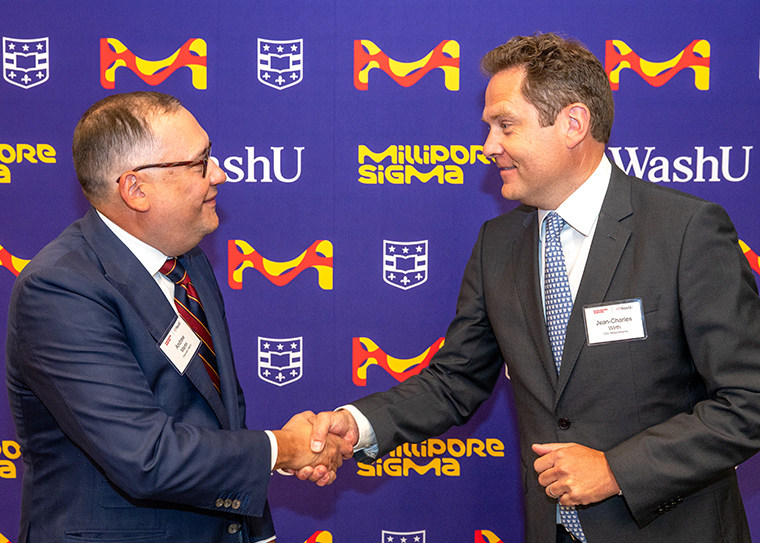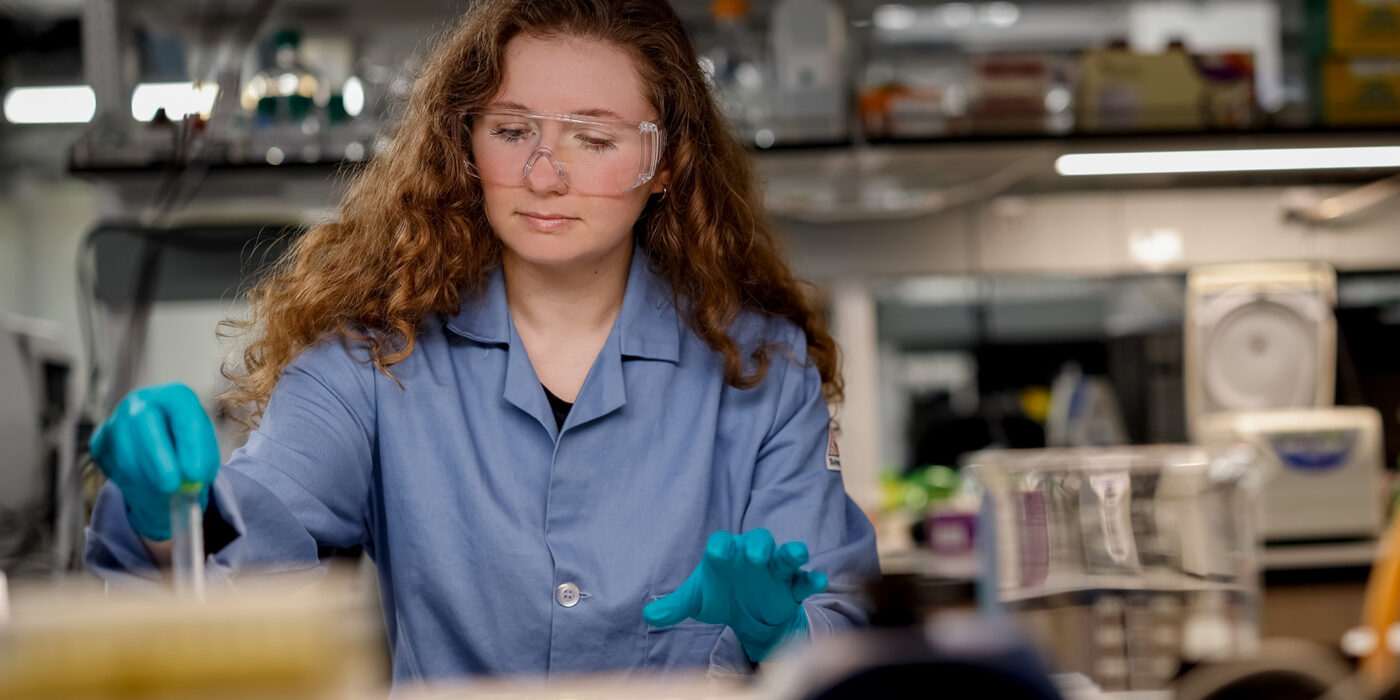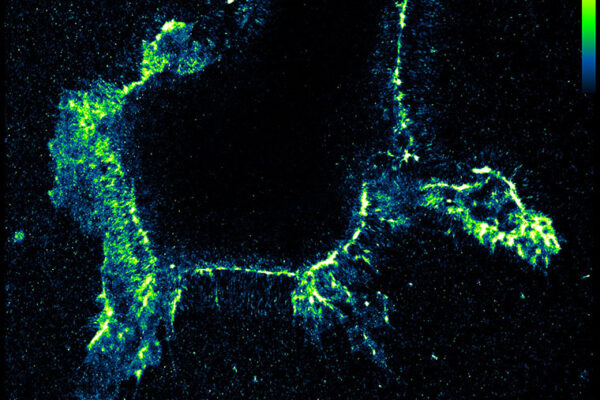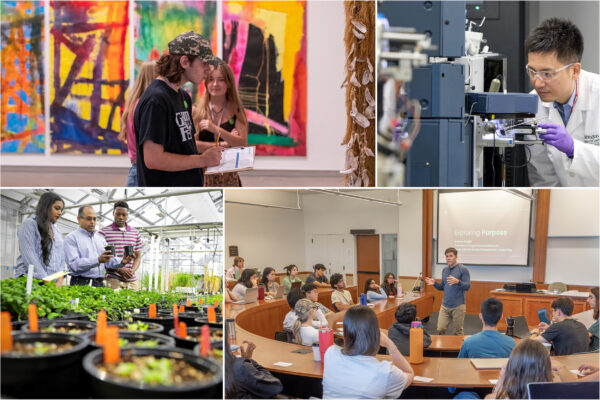A project that could help scientists identify novel ways to fight disease is one of the research efforts that will get a significant boost under a new collaboration agreement that Washington University in St. Louis has signed with leading science and technology company MilliporeSigma. The partnership builds on nearly a century of shared innovation and marks a significant expansion of research cooperation between the two organizations.
On July 24, the company signed a nonbinding memorandum of understanding with WashU. The agreement covers cooperative programs between MilliporeSigma and schools across WashU, including Arts & Sciences, the McKelvey School of Engineering and WashU Medicine.
“This agreement represents a new milestone in the shared history of WashU and MilliporeSigma,” Chancellor Andrew D. Martin said. “Collaboration is central to our university’s research and scientific success. Partnering with an industry leader like MilliporeSigma will expand our capacity to generate solutions to the world’s greatest challenges.”
“Academic-industry collaborations are more critical than ever in today’s dynamic scientific landscape,” said Jean-Charles Wirth, chief executive officer of MilliporeSigma, the U.S. and Canada Life Science business of Merck KGaA, Darmstadt, Germany. “Our partnership with WashU underscores MilliporeSigma’s commitment to empower the next generation of scientists driving progress in health care and the life sciences. By combining WashU’s world-class research capabilities with our advanced technologies and industry expertise, we can fuel innovation with lasting impact.”

Together, MilliporeSigma and WashU aim to accelerate the transition from lab discoveries to clinical applications and help eventually bring life-saving therapies to patients faster.
One of the first scientists to participate in the new collaboration with MilliporeSigma is Alex Quillin, a recent PhD graduate of WashU’s Vagelos Division of Biology & Biomedical Sciences. She is working to commercialize a tool that can be used to track crucial RNA modifications in cells — an advance that could lead to a new understanding of the origins of many illnesses.
The tool was originally developed in the laboratory of Jennifer Heemstra, the Charles Allen Thomas Professor of Chemistry in Arts & Sciences at WashU, and at Emory University. Now, MilliporeSigma will take important steps toward making the tool more broadly available worldwide.
Quillin is working as part of a team at one of MilliporeSigma’s production and research-and-development sites in St. Louis.
“My main goal is to take the assay that we developed in the Heemstra lab and make it into a kit that can be commercialized,” Quillin said. “We want other researchers to be able to perform the assay quickly and get the data that they need.”
In addition to advancing discovery and innovation directly through collaborative research and technology transfer, the new agreement between MilliporeSigma and WashU also aims to strengthen science, technology, engineering and math (STEM) education and foster the development of life sciences leaders through fellowship programs, internship opportunities and mentoring, among other activities.
Already there is a strong talent pipeline between WashU and MilliporeSigma. WashU alumni founded Sigma Chemical Co., which was acquired by Merck KGaA, Darmstadt, Germany, and now operates as MilliporeSigma. Nearly 100 alumni currently work at MilliporeSigma and its parent company. Notably, Jeffrey Whitford, MBA ’12, MilliporeSigma’s vice president for sustainability and social business innovation, played a key role in bringing the new agreement to fruition.
Since 2012, MilliporeSigma has provided annual support for the WashU Institute for School Partnership’s STEMpact program. The company also has sponsored several research projects at WashU and contributed more than $13.8 million worth of laboratory equipment and supplies to help scientists advance important research across the university.
“This collaboration with MilliporeSigma exemplifies the kind of academic-industry partnership that accelerates the journey from discovery to impact,” said Doug E. Frantz, vice chancellor for innovation and commercialization at WashU. “By aligning our research strengths with MilliporeSigma’s industry expertise, we are creating a powerful platform to move transformative ideas out of the lab and into the world, where they can ultimately improve human health and advance scientific progress.”



